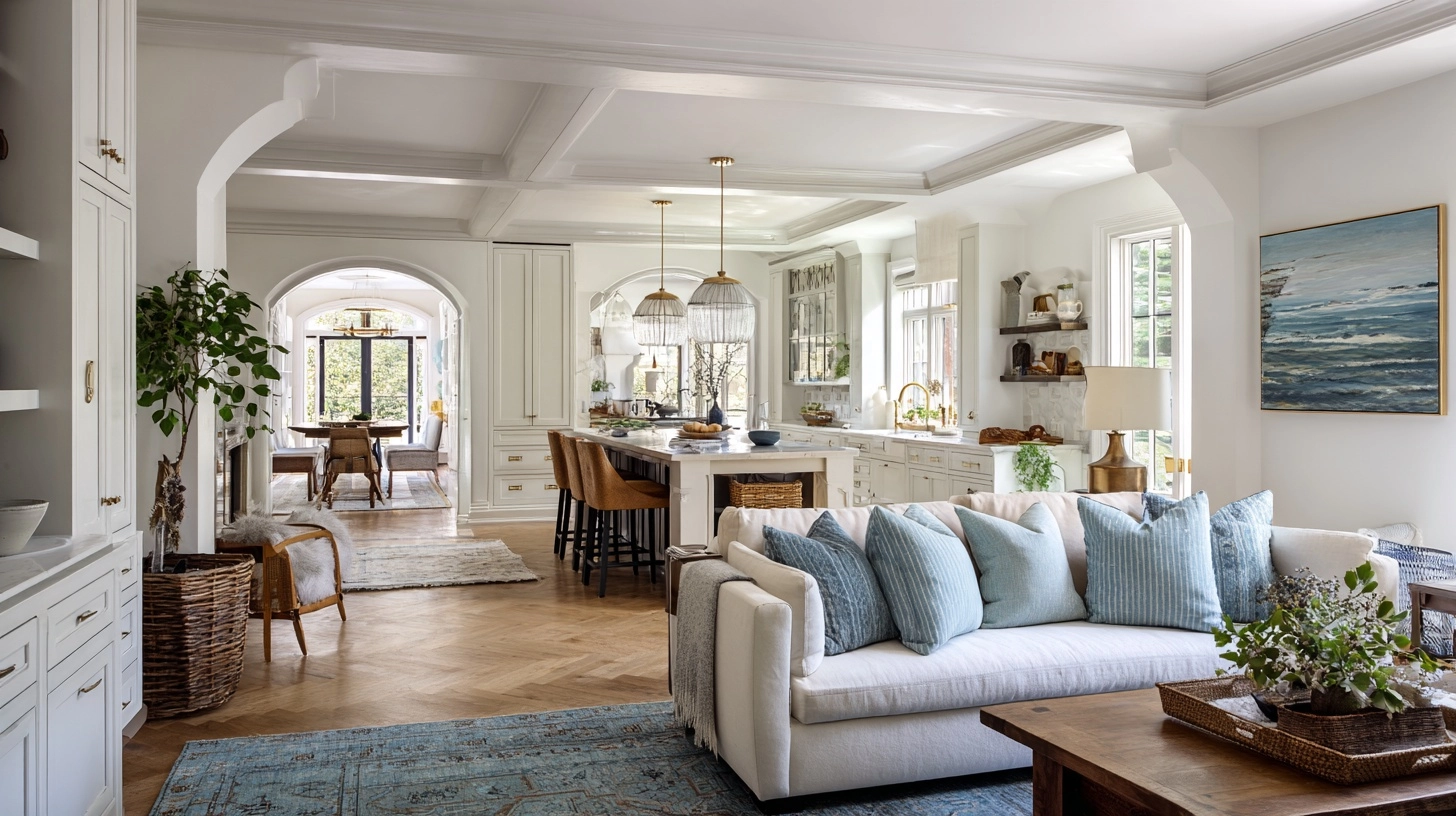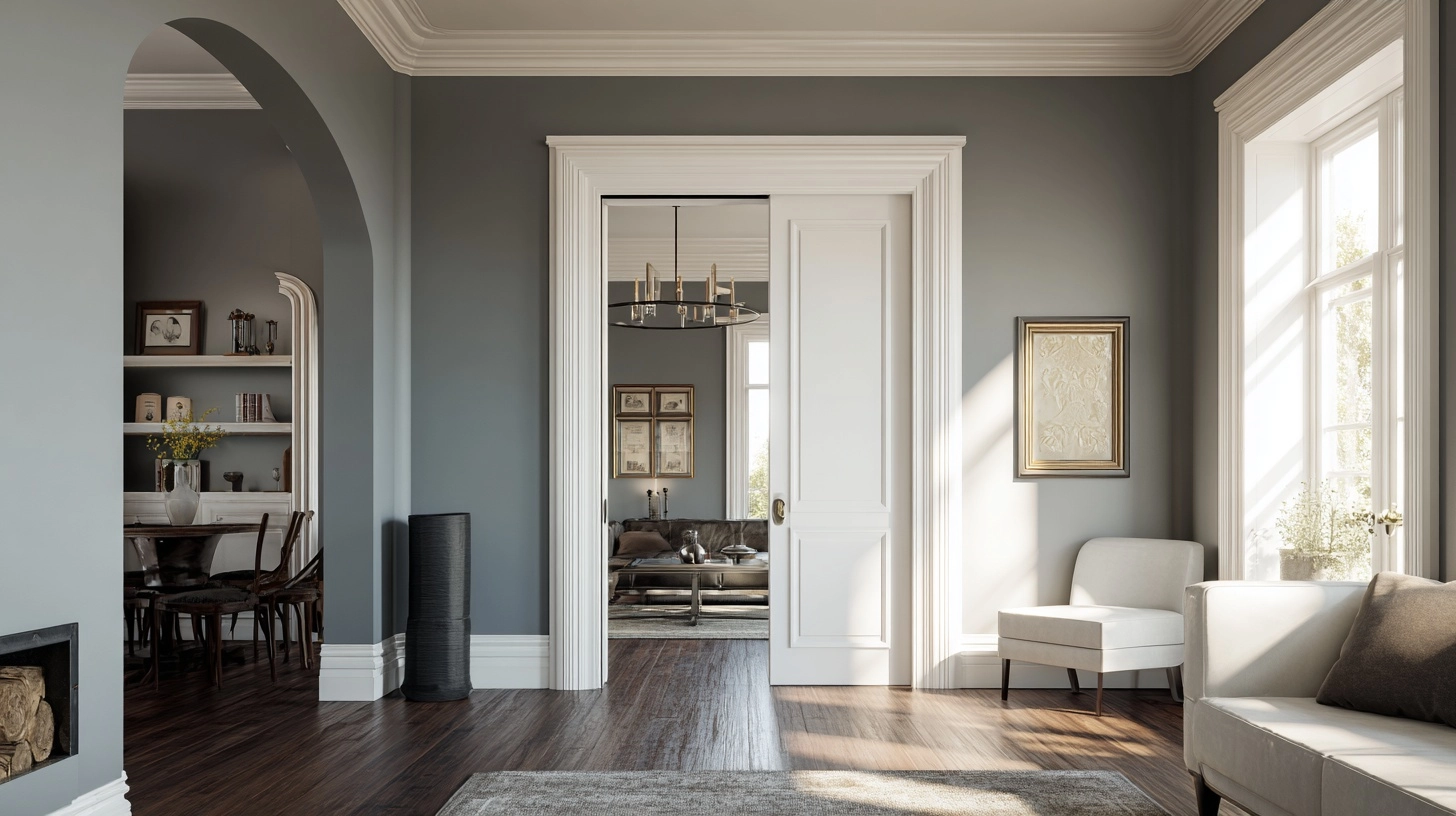
Open Plan, Defined: Why Homes Are Moving Back to Separated Zones

Smart Space Planning for Modern Arizona Homes in 2026

The kitchen is often considered the heart of the home, where culinary magic happens and memories are made. Whether you’re a homeowner embarking on your first renovation or a seasoned construction professional, understanding the costs involved in a kitchen remodel is essential for a successful project. From basic cosmetic updates to lavish redesigns, the average price for a kitchen remodel can vary significantly. This article will guide you through the key factors that influence costs, offering visionary tips to achieve a stunning kitchen that balances form, function, and budget.
The cost of a kitchen remodel can largely depend on the scope of work involved. Here's a general breakdown of average expenses to consider:
Basic Remodels: For a minor remodel (like updating countertops, adding a fresh coat of paint, or replacing cabinet hardware), you can expect to spend between $10,000 and $15,000. This is ideal for giving your kitchen a refreshed look without extensive alterations.
Mid-Range Remodels: A more comprehensive renovation, including new appliances, semi-custom cabinetry, and upgraded lighting, typically falls between $20,000 and $50,000. These projects often involve minor layout changes and higher-end materials.
Major Remodels: High-end remodels that include custom cabinetry, top-tier appliances, structural changes, and luxury materials can easily surpass $50,000 and may even reach $100,000 or more. These projects transform the kitchen into a truly bespoke space.
Breaking down the costs further into cabinets, appliances, countertops, flooring, and lighting will give you a clearer picture of where your money is going and help you allocate your budget effectively.
Several factors influence the overall cost of a kitchen remodel, each contributing to the final price tag:
Materials: The choice of materials—from cabinetry and countertops to flooring and backsplash—plays a significant role in determining costs. Opting for budget-friendly laminate versus high-end marble can drastically affect expenses.
Labor: Professional labor costs for electricians, plumbers, and carpenters can add up quickly. It’s essential to get detailed quotes and understand the scope of work each professional will handle.
Kitchen Size: Naturally, a larger kitchen will require more materials and labor, leading to higher overall costs. However, small kitchens can be equally expensive if you’re opting for premium materials and intricate design solutions.
Layout Changes: Altering the layout, such as moving plumbing or electrical outlets, can significantly increase costs due to the additional labor and materials required.
Geographic Location: Costs can vary depending on your location. Remodeling in urban areas like Chicago may come with a premium due to higher labor and material costs compared to rural regions.
Understanding these factors can help you prioritize your spending and ensure your investment aligns with your vision.
Creating a realistic budget is crucial for any successful kitchen remodel. Here are some visionary tips to help you budget wisely:
Set Priorities: Identify the most important elements of your kitchen remodel. Is it custom cabinetry, state-of-the-art appliances, or luxurious countertops? Prioritize these items in your budget.
Plan for Contingencies: Always allocate an extra 10-15% of your budget for unexpected expenses. Remodeling projects often uncover unplanned issues such as outdated plumbing or electrical work.
Compare Quotes: Obtain multiple quotes from contractors to ensure you're getting the best value for your money. Don’t hesitate to negotiate or seek second opinions.
Implementing these tips can help you manage costs effectively while ensuring no compromise on quality and style.
Embarking on a kitchen remodel can be overwhelming, but collaborating with experts can help streamline the process and bring your vision to life. Here’s how to work effectively with design and construction professionals:
Consult an Interior Designer: A professional designer not only creates a layout that maximizes space and functionality but also helps you select materials and finishes that align with your style and budget. Their expertise ensures your kitchen design is cohesive and practical.
Partner with a General Contractor: A reputable general contractor will provide a dedicated project manager who oversees the daily operations, ensuring the remodel progresses smoothly. They coordinate all trades, track timelines, and handle any issues that arise during the renovation.
Prioritize Communication: Clear and consistent communication between you, your designer, and the contractor is essential. Regular check-ins ensure everyone is on the same page regarding progress, materials, and any changes to the scope of the project.
Collaborating with experienced professionals ensures your kitchen remodel is completed to the highest standards, transforming your ideas into a functional and beautiful space.
A well-executed kitchen remodel can significantly increase the value of your home. Consider these visionary strategies for maximizing your investment:
Focus on Functionality: A functional kitchen that caters to your lifestyle increases not only your day-to-day satisfaction but also the home’s marketability. Consider the classic work triangle (sink, stove, refrigerator) for efficiency.
Opt for Timeless Designs: While trends come and go, timeless designs ensure your kitchen remains stylish and appealing for years to come. Lean towards neutral colors, classic finishes, and versatile layouts.
Eco-Friendly Upgrades: Energy-efficient appliances, sustainable materials, and low-flow faucets not only reduce your environmental impact but also appeal to eco-conscious buyers. These upgrades can save money in the long run through reduced utility bills.
Quality Over Quantity: Invest in high-quality materials and craftsmanship. Well-made cabinets, countertops, and fixtures will stand the test of time and contribute to the overall value of your home.
By focusing on functionality, timelessness, sustainability, and quality, you can ensure your kitchen remodel is both a personal haven and a valuable asset.
Disclaimer: The content provided in this article is for informational purposes only and is not intended as financial, tax, or investment advice. JL Coates is not a financial advisor, tax consultant, or investment specialist. We recommend consulting with a professional financial advisor, tax specialist, or investment advisor to discuss your specific circumstances before making any financial, tax, or investment decisions based on this information. JL Coates assumes no responsibility for any actions taken based on the information provided in this article.



